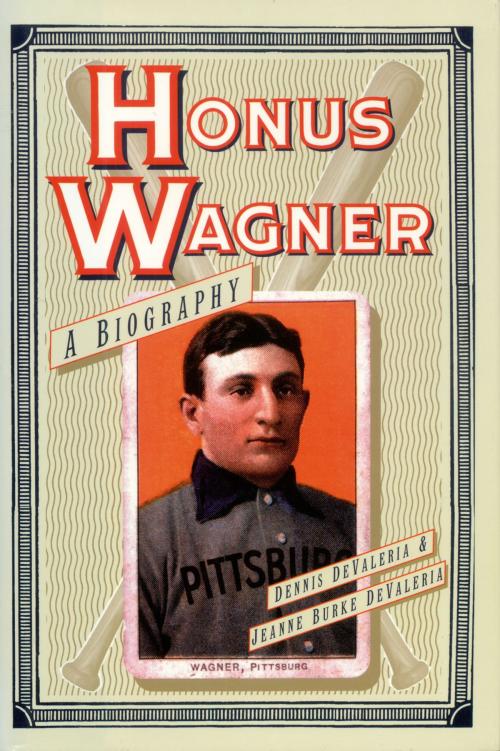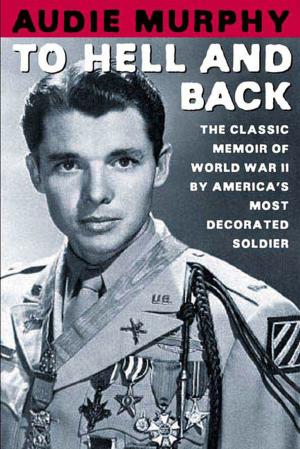| Author: | Dennis DeValeria, Jeanne Burke DeValeria | ISBN: | 9781466862883 |
| Publisher: | Henry Holt and Co. | Publication: | January 14, 2014 |
| Imprint: | Henry Holt and Co. | Language: | English |
| Author: | Dennis DeValeria, Jeanne Burke DeValeria |
| ISBN: | 9781466862883 |
| Publisher: | Henry Holt and Co. |
| Publication: | January 14, 2014 |
| Imprint: | Henry Holt and Co. |
| Language: | English |
"We think we have made a deal which will materially help us out," Fred Clarke, manager of the National Louisville Colonels, prophetically told the local media in 1897. "After negotiating for some days we have succeeded in securing Hans Wagner...He is a big, heavy German, with very large hands, and is powerful as a bull. He kills the ball." A few years later, the widely read sportswriter Hugh Fullteron would refer to Wagner as "the nearest approach to a baseball machine ever constructed."
Honus Wagner is generally acknowledged as the finest shortstop in baseball history. Along with Babe Ruth, Ty Cobb, Christy Mathewson, and Walter Johnson, he was one of the first five players to be elected to the Baseball Hall of Fame. His rare 1909 baseball card--known to collectors as the Holy Grail of American memorabilia--fetched nearly half a million dollars at auction in 1991. His rise paralleled the development of baseball as the national pastime, and his playing skills remain legendary. He was, possibly, the first superstar of American sports.
And yet, amazingly, a full-length biography of Honus Wagner had never before appeared. Here, Dennis and Jeanne DeValeria tell the sports hero's whole story. The son of German immigrants, Wagner (1874-1955) grew up in Andrew Carnegie's Pittsburgh, working in coal mines at age twelve. At age thirteen he worked in a steel mill; at twenty-one he was a professional baseball player. Despite his hardscrabble background, he came to be respected by those in the highest reaches of American society: when he became an icon, he would know President Howard Taft and industrialist Henry Ford. And with prestige came wealth: one of the highest-paid players in the game, he was among the first in his hometown to own an automobile.
At a time when baseball was a raw, aggressive game played by rugged men, the unflappable Wagner's humble ways enhanced his miraculous performance throughout his twenty-one-year career, including three seasons with the Louisville Colonels and eighteen with the Pittsburgh Pirates. Wagner's gradual emergence from the pack into stardom and popularity is described here in rich detail. But the book also reveals much of Wagner's family and personal life--his minor league career, his values, his failed business ventures during the Depression, his later years--about which, until now, there had been no well known narrative.
Neither the "rowdy-ball" ruffian nor the teetotal saint constructed of legend, Wagner is presented here in a complete portrait--one that offers a vivid impression of the era when baseball was America's game and the nation was evolving into the world's industrial leader.
"We think we have made a deal which will materially help us out," Fred Clarke, manager of the National Louisville Colonels, prophetically told the local media in 1897. "After negotiating for some days we have succeeded in securing Hans Wagner...He is a big, heavy German, with very large hands, and is powerful as a bull. He kills the ball." A few years later, the widely read sportswriter Hugh Fullteron would refer to Wagner as "the nearest approach to a baseball machine ever constructed."
Honus Wagner is generally acknowledged as the finest shortstop in baseball history. Along with Babe Ruth, Ty Cobb, Christy Mathewson, and Walter Johnson, he was one of the first five players to be elected to the Baseball Hall of Fame. His rare 1909 baseball card--known to collectors as the Holy Grail of American memorabilia--fetched nearly half a million dollars at auction in 1991. His rise paralleled the development of baseball as the national pastime, and his playing skills remain legendary. He was, possibly, the first superstar of American sports.
And yet, amazingly, a full-length biography of Honus Wagner had never before appeared. Here, Dennis and Jeanne DeValeria tell the sports hero's whole story. The son of German immigrants, Wagner (1874-1955) grew up in Andrew Carnegie's Pittsburgh, working in coal mines at age twelve. At age thirteen he worked in a steel mill; at twenty-one he was a professional baseball player. Despite his hardscrabble background, he came to be respected by those in the highest reaches of American society: when he became an icon, he would know President Howard Taft and industrialist Henry Ford. And with prestige came wealth: one of the highest-paid players in the game, he was among the first in his hometown to own an automobile.
At a time when baseball was a raw, aggressive game played by rugged men, the unflappable Wagner's humble ways enhanced his miraculous performance throughout his twenty-one-year career, including three seasons with the Louisville Colonels and eighteen with the Pittsburgh Pirates. Wagner's gradual emergence from the pack into stardom and popularity is described here in rich detail. But the book also reveals much of Wagner's family and personal life--his minor league career, his values, his failed business ventures during the Depression, his later years--about which, until now, there had been no well known narrative.
Neither the "rowdy-ball" ruffian nor the teetotal saint constructed of legend, Wagner is presented here in a complete portrait--one that offers a vivid impression of the era when baseball was America's game and the nation was evolving into the world's industrial leader.















